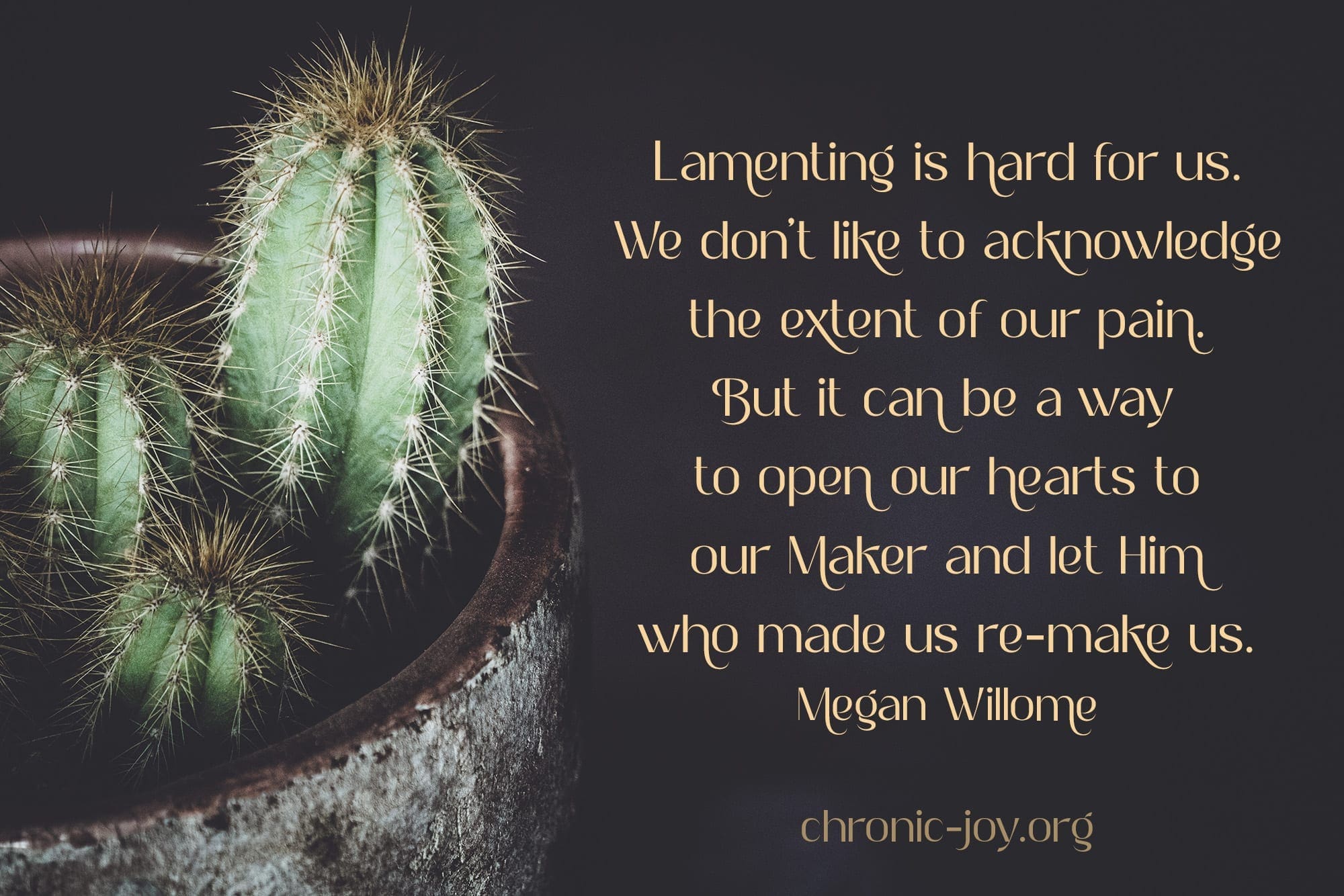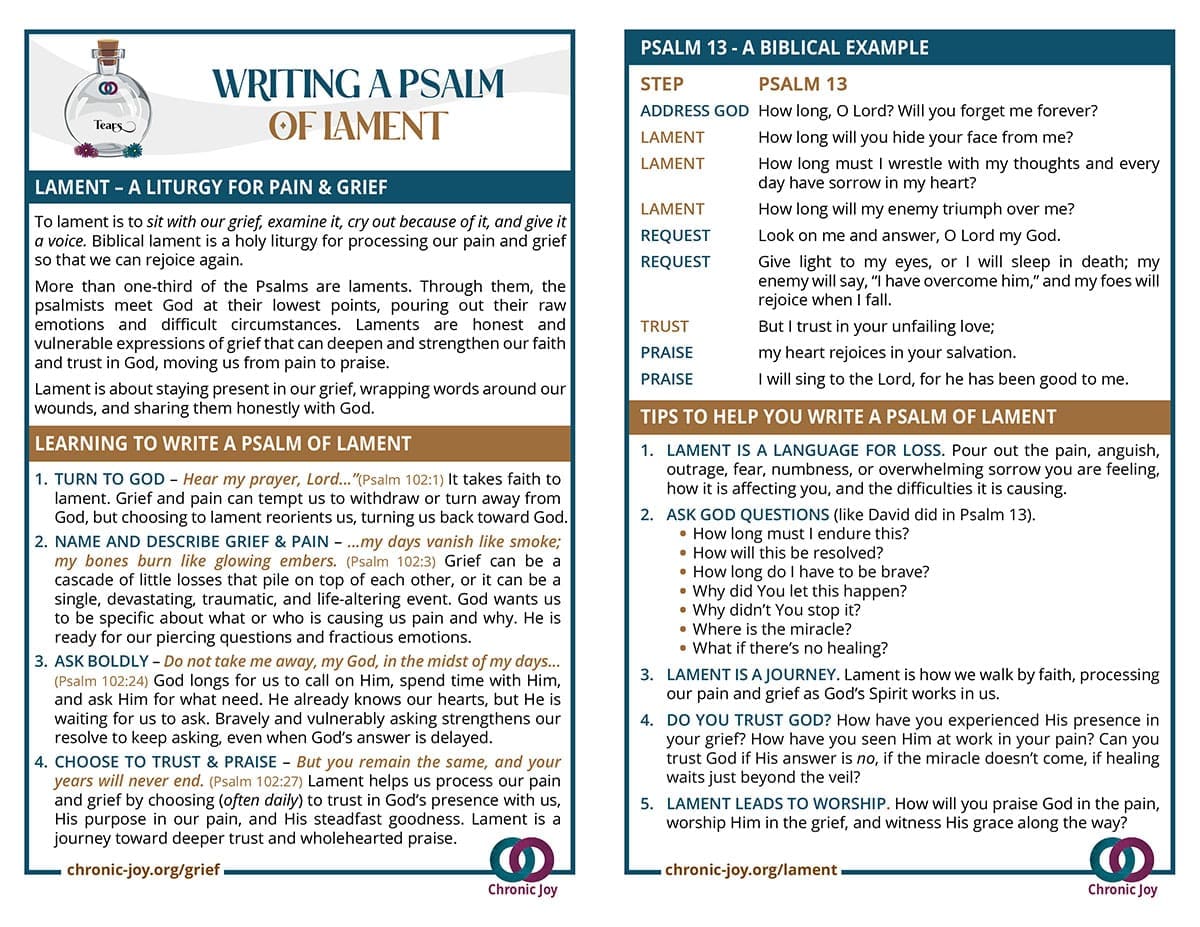
“Lamenting is hard for us. We don’t like to acknowledge the extent of our pain. But it can be a way to open our hearts to our Maker and let Him who made us re-make us.” Megan Willome
WITHERED TREES: WAIT AND LAMENT
For my first poetry prompt here at Chronic Joy, Windows and Trees, I wrote about spring trees turning purple and pink and white. This year some of those same trees are turning, but others are not.
The winter storm that hit Texas around Valentine’s Day left many people I know without power and water for days … eight days, 17 ½ days, 23 days. There are sections of the county that look like a tornado struck. One friend said she lost 100 trees.
Spring is normally my favorite time of year, when not only the wildflowers bloom but also the trees. This year as I take my daily walks, I am looking to see what survived the storm and what did not.
At church, the gardeners cut off the dead palm branches — who knows if the trunk made it. We’re waiting on the peach trees, which should be bursting into flower by now. Will the grape vines yield sweeter fruit because of the extra chill hours, or will they not return? We don’t yet know. Maybe what we can do is wait and lament.
WAIT AND LAMENT
And in my own yard, I also do not know. I am waiting.
The prophet Joel’s words describe what I see:
The vine is dried up
and the fig tree is withered;
the pomegranate, the palm and the apple tree—
all the trees of the field—are dried up.
Surely the people’s joy
is withered away.
Joel 1:12
WHY WE NEED LAMENT AS WE WAIT
This verse from Joel is a lament. He expresses in poetic form how he feels about the withering of the trees. His joy has dried up, just like them.
Lamenting is hard for us. We don’t like to acknowledge the extent of our pain. But it can be a way to open our hearts to our Maker and let him who made us re-make us.
After a storm, after locusts, after war, after illness and other devastations, we wait. We wait to see what will return and what will not. We hold our breath against lament. Such waiting is not joyful. But as we wait and lament, we open our hurting hearts to God.
At the sight of each green, ground-level sprig, my heart has leaped. The Turk’s cap made it and the Jerusalem sage. The cedar elm tree is greening. But dear Lord, how long do I have to wait to find out about my cactus? I wait and lament.
After my dad died this fall, my spiritual director gave me a heart-shaped cactus from her property. I put it in my dad’s blue and white Mexican pot and put it out front, where it was covered with a thick layer of ice and then snow. After the melt, it doesn’t quite look right. It’s too early for its yellow flowers or red-purple fruit. Each day I look and wonder, What can I do?
I can wait. And I can lament.
WRITE IT SIDEWAYS
One way to lament is to write sideways. Let’s say you want to lament the loss of a relationship — write about it as if it were a living thing. Instead of mentioning a person by name, write about a tree cut in half by a storm. Write about vines that will not produce new grapes. Write about a cactus.
Succulent
Every day I check—
are you dormant or dead?
did you get last night’s rain?
was it too much? too little too late?
How was I to know how to care for something adapted to neglect?
When the storm came I should have brought you in but
you never liked to be touched
Every day I check—
Give me a sign
IT’S YOUR TURN
Let’s return to our passage from the book of Joel. For just a moment, set aside the fact that this verse is in the Bible: Treat it as a short poem. What do you think it is saying? Take a few minutes to journal about it. Even when you don’t feel like writing a poem, you can always journal about one. All you need is a pencil and paper (or a computer, if you prefer to be able to read your own writing).
- Read the poem.
- Jot down what you notice, what you like, what you don’t, what questions you have, and at least one way in which the poem speaks to your soul.
- Read the poem again, aloud (if you didn’t the first time). Is there anything you notice this time that you want to add to your journal?


Megan Willome
Contributing Writer
Megan is the author of Love and other Mysteries (Wipf and Stock), a new poetry collection. She's also written The Joy of Poetry, a memoir, and Rainbow Crow, a picture book of form poems. Her day is incomplete without poetry, tea, and a walk in the dark. Read her work at meganwillome.substack.com.

Lament
Step in slowly. Sit with God. Allow yourself time and space to feel and experience your pain. When you’re ready, take up your pen and explore the precious and life-giving gift of lament.

Recent Comments